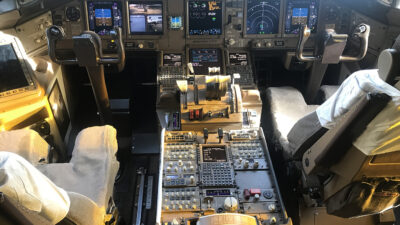When people think about a career in aviation, most imagine pilots soaring above the clouds, navigating through blue skies. And sure, being a pilot is an incredible job, but it’s not the only path in this vast and exciting industry. In fact, aviation is a lot like a well-oiled machine with plenty of different gears keeping everything running smoothly—each one just as vital as the next. If you’re passionate about aviation but not sure if flying is for you, there are so many rewarding careers to explore beyond the cockpit. Let’s take a closer look at some of them!
Flight Dispatcher: The Master Planner
Ever wonder who makes sure flights take off at the right time, follow the safest routes, and deal with last-minute weather changes? That’s the flight dispatcher. They work closely with pilots to create flight plans, taking into account weather conditions, airspace restrictions, fuel requirements, and more. Think of them as the brains behind every flight—making sure everything is ready before the airplane even leaves the ground. Dispatchers have a direct impact on safety, efficiency, and keeping passengers comfortable. If you’re organized, love problem-solving, and thrive in a fast-paced environment, this role could be perfect for you.
Basic Requirements to become an Aircraft Flight Dispatcher:
- Be at least 21 years old
- Be proficient in speaking, reading, and writing English
- Have a high school diploma or equivalent
It’s important to note that you don’t need a college degree or prior aviation experience to start your training.
Aircraft Flight Dispatcher Resources:
- You can find a list of Aircraft Dispatcher Schools Here: Aircraft Dispatcher Schools
- Check out this guide on how to become a Flight Dispatcher: How to Become a Flight Dispatcher: Your Guide to a Career in Aviation
- Also check out the Flight Dispatcher Career Advancement Opportunities: Flight Dispatcher Career Advancement Opportunities: Unlocking Your Aviation Potential
Air Traffic Controller: The Sky’s Traffic Cop
If you love the idea of high stakes and responsibility, being an air traffic controller might be the career for you. Air traffic controllers guide airplanes on the ground, during takeoff, landing, and while they’re in the air. They keep the skies orderly, safe, and efficient. It’s one of the most challenging jobs in aviation, and you need a calm temperament and razor-sharp focus. Controllers are often the unsung heroes of aviation—without them, the skies would be chaos. Plus, it’s a career that comes with a lot of pride, knowing that you’re keeping countless travelers safe every day.
Basic requirements to become an Air Traffic Controller:
- Be a U.S. citizen.
- Age restriction: You must apply before turning 31 years old (with some exceptions).
- Medical standards: Pass a rigorous FAA medical examination.
- Background check: Successfully complete a security investigation.
- English proficiency: You must speak clearly and effectively for all communications.
- Relocation flexibility: Be willing to relocate, as assignments are based on FAA staffing needs.
Air Traffic Controller Resources:
- You can find a list of Air Traffic Controller Schools Here: Air Traffic Controller Schools
- Check out this guide on how to become a Air Traffic Controller: How to Become an Air Traffic Controller in the USA: A Step-by-Step Guide
3. Aircraft Mechanic: The Hands Behind the Magic
Airplanes are complex machines, and it takes a lot of skill to keep them in top shape. Aircraft mechanics work behind the scenes, making sure every aircraft is safe to fly. From the engine to the landing gear, they inspect, repair, and maintain all parts of an airplane. If you love working with your hands, enjoy problem-solving, and are interested in how things work, this might be right up your alley. And it’s not just about fixing things—there’s a huge sense of accomplishment in knowing that you’re helping keep flights safe and passengers secure.
4. Aviation Management: Running the Show
Airports are busy places—like small cities with people, logistics, and operations all happening at once. Aviation management professionals keep it all running smoothly. They work in airport operations, customer service, and administration. These folks make sure everything from baggage handling to gate scheduling is organized. If you’re good at leading people and managing projects, you could make a real difference in how well an airport runs. There’s a lot of satisfaction in knowing you’re helping people’s journeys go smoothly, even if they never realize the hard work that goes on behind the scenes.
5. Flight Attendant: More than Just Serving Drinks
Flight attendants are the face of an airline, and their job goes way beyond handing out drinks and snacks. They’re there to ensure passenger safety, manage emergencies, and make the in-flight experience as enjoyable as possible. They’re trained in first aid, firefighting, and handling all sorts of unexpected situations. If you’re a people person, love traveling, and can stay calm under pressure, this could be an incredibly rewarding job—plus, you get to see the world while doing it!
6. FAA Aviation Safety Inspector: Ensuring Every Flight is Safe
Safety inspectors are the ultimate guardians of aviation safety. They’re responsible for checking aircraft, pilot certifications, maintenance records, and making sure everyone’s following strict safety guidelines. If you’re detail-oriented and passionate about keeping people safe, this role is a crucial one. Safety inspectors often come from a background in aviation mechanics or piloting, which gives them firsthand knowledge to help enforce the rules that protect passengers and crew.
7. Aerospace Engineer: Designing the Future
If you’re fascinated by how airplanes are built and want to be part of the future of aviation, aerospace engineering might be the right fit for you. Aerospace engineers work on designing, developing, and testing new aircraft and aviation systems. They solve problems to make airplanes safer, more efficient, and more environmentally friendly. If you’re a bit of a science and math nerd, this is a career that lets you use your skills to change the world of aviation.
Why Aviation?
Aviation is more than just flying; it’s an industry filled with people who love making travel possible. Whether you want to work in the sky or on the ground, there are plenty of ways to be a part of this dynamic field. From planning flights to keeping airplanes in perfect condition, everyone plays an important role in making air travel possible.
If you’re considering a career in aviation but don’t see yourself as a pilot, don’t worry—there are so many other ways to be involved. The skies are full of opportunity; you just need to find the role that fits you best.
So, which aviation career speaks to you? Whether it’s guiding aircraft safely to their destination, making sure each airplane is in top shape, or being the friendly face that greets passengers, there’s a place for you in aviation—even if it’s not in the cockpit. Now click her to check out our large list of aviation related schools.



